AUBURN — Lying beneath a seemingly innocuous proposal before Lewiston and Auburn’s city councils to change the makeup of the cities’ airport board of directors is a host of serious problems with the airport ranging from a lack of revenue and nearly $1 million in debt to board resignations, staffing issues and the recent resignation of the airport’s manager.
According to information gathered by the Sun Journal, the Auburn-Lewiston Municipal Airport is currently facing a deficit of nearly $1 million or more, while revenue has dropped sharply in the wake of the insolvency of one of the airport’s largest outside sources of revenue — Elite Airways. The airport’s annual budget is just over $2 million.
Furthermore, the airport’s manager, James Scheller, resigned March 30 after one year of a four-year contract, and there’s no money budgeted for the position through June 30, 2025. At least three open positions on the airport staff of 13 will go unfilled for the foreseeable future and the chairman of the board of directors suddenly resigned in February, following the resignation of another board member in January.
People connected with the airport and others no longer connected with the airport recently described it as “dysfunctional” and “a mess,” while others call that characterization too harsh.
Jonathan LaBonte, former mayor of Auburn and the current chairman of the board and Auburn’s transportation systems director, described it this way: “Obviously we have some financial challenges. We’re going to have to make some decisions to keep this year’s budget balanced. Next year’s budget has a big deficit that we need to figure out how we tackle that, so that we have a balanced budget.”
Adding to the airport’s challenges, a letter dated April 21 from the Federal Aviation Administration gave the airport 30 days to respond to specific items that it found needed correcting from a site inspection last summer. The stated purpose of the inspection was to determine if the airport sponsor, the cities of Auburn and Lewiston, is in compliance with federal obligations dealing with property use, lease agreements and property releases.
Failure to address the actionable items listed in the report could jeopardize future federal funding at the airport.

Airplanes are lined up on the runway Tuesday morning at Auburn-Lewiston Municipal Airport in Auburn. Russ Dillingham/Sun Journal
While the airport’s problems appear to have been building over recent years, pilots at the airport in the last year have uniformly expressed their frustrations and distrust for the leadership and operation of the airport. They now point to the current move to change the structure of the board as a last straw that they oppose, primarily because they say it would leave the board with no expertise or real experience in general aviation — defined as all civilian, non-commercial flight.
The board-restructuring proposal, outlined earlier this month, would downsize the membership from nine to five members, removing three resident members and assigning city staff to the five board seats.

Jonathan LaBonte, chairman of the airport board and de facto manager of the airport since March, looks around Tuesday morning at Auburn-Lewiston Municipal Airport in Auburn. Russ Dillingham/Sun Journal
Friction between pilots and airport leadership surfaced publicly during last year’s construction project to resurface the airport’s east ramp. In 2019, the project was projected to have a total cost of $660,000 with a $33,000 local share split between Lewiston and Auburn, which oversee joint operation of the municipal airport.
As of late winter, the cost of the project had swelled to $2.1 million with an estimated local cost of $500,000 to be split between both cities and the airport. LaBonte said the project still has not been closed out, with some final work expected to be completed in the coming months.
The project and what pilots say was poor communication over how it would unfold remains a sore point. Aviators based in hangars in the east ramp area were forced to come up with workarounds and several relocated their operations to Portland or other airports, with at least one making the move permanent, meaning the loss of a paying tenant.
But the paving issues were just some of the problems developing at the airport.
AIRPORT BOARD PROPOSED CHANGES
Earlier this week, the city councils from both cities decided to postpone voting on the proposed changes to the airport board. A rare joint meeting of the councils didn’t result in any public comments on the issue after a lengthy executive session.
The board proposal has been criticized by board member Marc Blais and other airport tenants, who say the board would no longer have members knowledgeable in aviation. If approved, the board would have two staff members each from the cities of Lewiston and Auburn, as well as the executive director of the Androscoggin Valley Council of Governments.
LaBonte, who was tapped to fill in temporarily for the departed airport manager, has said the changes would make the board more efficient and stable, especially after a period of high turnover and several seats being vacant.
In February, board chairman Robert McCarthy, a Lewiston councilor, stepped down as chair. A month prior, Brian Pickard, an appointment of the Lewiston Auburn Metropolitan Chamber of Commerce, resigned and has not been replaced. LaBonte said the chamber decided to “step back” due to concerns about “some of the issues” at the airport.
When reached this week, chamber President Shanna Cox said that because the timing of Pickard’s leaving coincided with other leadership changes at the airport, it was an opportunity to have a discussion about the interlocal agreement between the two cities.
“It was an intentional choice to pause and be in conversation about our role of filling seats, what that looked like relative to the current interlocal agreement, and what potential changes to the agreement would be,” she said.
The Aircraft Owners and Pilots Association, which says it represents the interests of more than 1,500 pilots and owners in Maine, submitted a letter to both Auburn and Lewiston city councils and mayors this week, stating its opposition to the proposed change to the board structure writing, “We oppose the proposal to restructure the airport board from nine seats to only five seats, removing seats with certificated pilots nor requiring aviation expertise for any of the seats on the new board.”
The current board makeup calls for appointments from both the chamber and the Lewiston Auburn Economic Growth Council, which used to be its own entity but is now run by the chamber. Cox said the chamber officially supports the proposed change to downsize the board to five members, but was only notified of the proposal a week before it was brought to the city councils.

The tail of an airplane that is lined up on the runway Tuesday morning at Auburn-Lewiston Municipal Airport in Auburn. Russ Dillingham/Sun Journal
MAYORS SEE DIFFERENT PATHS FORWARD
As the two cities continue talks on the airport board, officials in both cities — who may disagree on the best way forward — say the changes will impact efforts to “right the ship” at the airport after some turbulence.
Auburn Mayor Jason Levesque said this week the airport could be an “amazing asset if properly utilized through effective management and governance.”
He said officials have to look at how other, more successful, airports are managed. He pointed to Sanford as an example.
“We haven’t given it the time and attention it deserves, and we’ve denied the entire region the potential for amazing economic activity,” he said. “It’s time for action. We can’t continue to do what we’ve been doing and expect a different outcome.”
Levesque also agrees with the proposed changes to the board. He likened pilots being on the board to having teachers on a school committee. He was referencing concerns previously stated by LaBonte over potential conflicts of interest, because the board sets fees and other costs paid by pilots and tenants.
“It’s not a private airport. The cities subsidize the airport annually, and it’s time the taxpayers start reaping some profit from that investment,” he said.
In Lewiston, Mayor Carl Sheline agrees the airport is “an incredible asset for our two cities,” adding that “it’s frustrating to hear about this constant stream of issues when other regional airports are flourishing.”
But, he said, he disagrees with the current proposal to remove all citizen members of the board, which include pilots.
“If we’re going to pull the airport out of this stall, we need to ditch the current flight plan,” he said. “Any new board structure that doesn’t include members with aviation experience is a non-starter for me. What’s lacking is a pilot-centric approach to airport management and governance. Without pilots, all we have are odd warehouses and an excess of pavement.”
LaBonte has recommended that to assist the proposed five-member, noncitizen board, an advisory panel of citizens and pilots could be established. But Sheline said the idea of an advisory panel “represents the kind of thinking that hasn’t been helpful.
“Pilots need to be at the table, not placated with committee,” he said.
He also believes the cities need to begin “a professional search for a new airport manager who can work with the board and pilots to create a strategic vision for the future.”
When asked recently, LaBonte said the airport is not currently planning a search for a new manager. He said based on conversations with city administration from both cities, “the current thinking” is to get through the next fiscal year without budgeting for a new manager, and “then we’ll assess what we need to have.”
Lewiston Councilor McCarthy, who still serves on the airport board, said he believes the airport’s financial woes have stemmed from poor management and poor oversight by the board over the last eight to 10 years. A lot of it was caused by turnover, he said. But, he believes the board also relied too heavily on the manager position, which he said has used the airport’s so-called “land fund” to make up for budget losses.
The land fund is a capital reserve account where proceeds from land sales at the airport were to be used for capital projects, and to pay contractors for work.
“What they were spending didn’t match what they were getting in revenue so they used the land fund,” McCarthy said. “It’s just been living beyond its means for a long time.”
LaBonte said there was also supposed to be a capital trust fund, based on a 1989 tax-sharing agreement, where the airport was supposed to deposit all of the excise tax revenues from the agreement into a trust fund. But, it was never done. He said when he asked for an account balance in December, it wasn’t identified, and had been used over the years as “operating subsidy.”

The new fuel storage facility at Auburn-Lewiston Municipal Airport in Auburn has far more capacity than what is needed for the small, municipal airport. Russ Dillingham/Sun Journal
VETERAN PILOT OFFERS AVIATOR PERSPECTIVE
Pilot Jim Platz has been flying out of the airport since the 1970s. He’s also a longtime tenant at the airport, where he leases land from the airport and built hangars in 1987, from which he runs humanitarian flights and subleases smaller hangars to other pilots.
Platz said the situation at the airport is complicated to understand, especially for people who are not part of the aviation community. He acknowledged there are many problems and that things started to decline about five years ago and have since picked up steam. The problems include financial, customer relations and safety issues, he said.
“I think if there’s one root cause, it was provisions in the interlocal agreement that defined the structure of the board,” he told the Sun Journal on Thursday. He said that structure has resulted in a board that had little to no knowledge of general aviation and certainly little to no knowledge of general aviation to run an airport. He acknowledged it hasn’t always been that way, and that past boards have included aviators and at least two pilots have served as chairmen of the board over the years.
Ron Russell, a pilot who has been flying out of the Auburn-Lewiston airport since 1969, told the Sun Journal last August that the airport board “is not competent to make decisions” and believes its manager “is taking us in the wrong direction.”
“For years I and most of my fellow airport users have not raised these issues,” he said. “Only in the past few months has the pot boiled over. Everyone here has had enough. It’s time to enlighten the public that we are in trouble. The system does not work. And it is getting worse.”
Yet little has been done to address the concerns of pilots and non-pilots, Platz noted, a pattern that has existed for a long time. “If you don’t have the right people in place, you’re never going to solve the problem, that’s how I see it,” Platz said. Not addressing complaints about customer service, for example, resulted in a loss of the airport’s customer base and then fuel sales as a result, which negatively impacts airport revenue.
“Customer service has been a big problem here. … The board never did anything about it,” he added.
Platz said the current proposal to change the structure of the board will leave it with no aviation expertise or knowledge, and that essentially having five city employees would make it an extension of a city department. “There’s also a conflict there too, because what’s good for the city employee sitting on the board is not necessarily good for the airport.”
Platz did not advocate an all-pilot board, but rather one composed of people who work in or with the aviation industry — lawyers, administrators, businessmen and women — who have a different level of understanding of how the industry works. He said having a city employee with specialty experience like finance could be an asset to the board.
He suggested an alternative structure for the board. Each city council — Auburn and Lewiston — by majority vote, would elect two members each, for a total of four members. That board would then, by majority vote, elect three additional board members for a total of seven.
In choosing those three board members, Platz said, it should be encouraged, but not mandated, that they be selected based on their expertise and experience in general aviation affairs, so it’s clear what’s intended by the change.
Also, Platz recommended there be no residency or employment status requirement for the three positions, allowing the board to attract experienced and knowledgeable people who have an interest in being part of the airport’s growth, even if they traveled here to do that.
While Platz admitted they are currently seeing a low point in the airport’s history, he said he was certain things can be turned around. “The answer is a resounding yes, absolutely yes. There’s no throwing in the towel here.”
Discussions with those familiar with the issue say two developments at the airport in recent years that were expected to bring benefits are now part of the problem.

In this Sun Journal photo from 2013, Lufthansa Technik’s group director of operations for Lufthansa’s Lockheed Project watches workers as they rebuild a Lockheed L.1649A Starliner aircraft at the Auburn-Lewiston Municipal Airport inside a custom-built hangar. After 10 years, the company gave up on the project. Russ Dillingham/Sun Journal file
LUFTHANSA LOCKHEED STARLINER PROJECT
For 10 years — from 2008 to 2018 — the Auburn-Lewiston Municipal Airport and the greater community were the beneficiaries of a once-in-a-lifetime project by the German airline Lufthansa. The airline embarked on an ambitious plan to buy and restore a Lockheed L.1649A Starliner, built in the late 1950s, to airworthy condition and return it to service as a trans-Atlantic air carrier. It was the biggest and fastest passenger and cargo plane in service when built and was replaced by jets like the Boeing 707.
Two of the huge planes had languished next to the airport for years, bought by local aviator and enthusiast Maurice Roundy. A third was located in Florida and brought to Auburn. Lufthansa’s initial plan was to rebuild one plane by using parts from the other two, with a timeline of three years. The company even had a new, 50,000-square-foot hangar built at the airport for the project at a reported cost of $3 million.
Over the course of the project as many as 300 people, including engineers and other staff from Germany, worked on the project, pumping untold amounts of money into the local economy. But the poor condition of the planes meant many parts had to fabricated, redesigned and built. Eventually, Lufthansa pulled the plug on the project in March 2018 and took one plane back to the Bremen Airport in Germany in the fall, where it remains stored today.
Over the 10 years, Lufthansa spent $163 million on the project and paid $250,000 a year to the airport to lease the hangar. The cities of Auburn and Lewiston own the hangar, however, and the remaining balance on the loan to build the original hangar is still approximately $1.6 million, or $115,000 a year through 2028.
ELITE AIRWAYS INSOLVENCY
The arrival of Elite Airways in January 2019, some six months after Lufthansa left Auburn, was hailed as “exciting” and the “beginning of a long-term addition that would position the Auburn-Lewiston Municipal Airport for future expansion” by then chair of the airport board Bettyann Sheats. There was also talk that the relationship with the now-defunct airline could lead to commercial flights out of Auburn.
Not everyone was so excited. Platz says the board was told emphatically by the aviation community at the airport not to sign a lease with Elite.
Officials at Elite, which leased the largest hangar at the airport as its northern maintenance base, made a lot of promises including the addition of up to 100 jobs here. Elite Airways stopped paying all its obligations and then halted all its fights in the summer of 2022 — not just in Maine but all over the country. The end result in Auburn was unpaid wages to former employees, a $90,000 bill for unpaid rent and thousands more in unpaid utilities, which the airport had to assume in order to keep critical safety systems functioning, like the fire suppression system in the hangar.
The Auburn-Lewiston airport formally evicted the company in March and took possession of Elite’s abandoned property in April, which includes three planes, jet engines and other parts and equipment. LaBonte says the airport will sell off what it can to try and recoup losses from Elite, but he doesn’t believe they will recover enough to pay off the debts.

Mark McGhee works on an airplane engine Tuesday morning inside his hangar at Dirigo Aerospace Solutions at the Auburn-Lewiston Municipal Airport in Auburn. Russ Dillingham/Sun Journal
DIRIGO AEROSPACE SOLUTIONS
One bright spot at the airport is the recent arrival, or return, of a team of aviators who used to run operations at the former Twitchell’s Airport in Turner: Mark and Kate McGhee. Experienced pilots and owners of Dirigo Aerospace Solutions LLC, the couple were forced to leave Twitchell’s last November when the privately owned airport was sold. They migrated their planes and tons of gear to the Auburn-Lewiston Municipal Airport. They also brought most of their customers.
They are currently leasing part of a hangar next to the airport terminal, where they run their maintenance business. “All of our customers have managed to find us,” Kate McGhee told the Sun Journal in an interview at the hangar last month. “We’re happy to be here, it’s where we want to be.”
They said they would be interested in becoming the airport’s fixed base operator, known as the FBO, however, the airport is currently taking on that role. LaBonte has put out a request for proposals for someone to help the airport run the FBO, but said he wants to hold on to the operation for now.
Typically, an FBO will handle all fuel sales and makes a profit from that, in addition to handling all the hangar and tie-down leases and fees, another source of revenue. The FBO can also handle flight training and maintenance, which are additional income sources.
Management and staffing issues at the airport appear to be contributing to the challenges, however, specifically the airport’s role as FBO, which LaBonte admits is “underperforming.” The latest financial statement shows FBO operations nearly $80,000 under projected revenue, with customers leaving the airport due to poor customer service.
For now, the McGhees are busy doing maintenance for customers who come from all over and they are very busy. They also service seaplanes, something they had to let go of when Twitchell’s closed. It was a seasonal business, with owners of camps and second homes in Maine seeking out the McGhee’s for their expertise and willingness to travel to clients who may need emergency repairs on a lake — something no one else does. “Seaplanes never break down (nearby),” Mark McGhee said. “They’re always 100 miles away.”
They also provided fuel and emergency services to the Maine Warden Service, which operates about four seaplanes.
A few weeks ago, they negotiated a return to property in Turner adjacent to the former airport and have resurrected the seaplane business, to the relief of the 75 or so clients they had amassed over the years. But it’s a bit of a logistical nightmare, with clients flying in and out of Turner and the McGhees shuttling clients’ planes to Auburn for service. But it’s an additional source of revenue and a specialty business, with few competitors.
The McGhees are not inclined to insert themselves into the middle of the imbroglio at the airport. They made it clear they just want to run their business.
“The reception (at Auburn-Lewiston Municipal Airport) has been great,” Kate McGhee said. “Everyone is thrilled to have an operator here. Everyone is thrilled to have another mechanic here — even the other mechanics here.”
Send questions/comments to the editors.




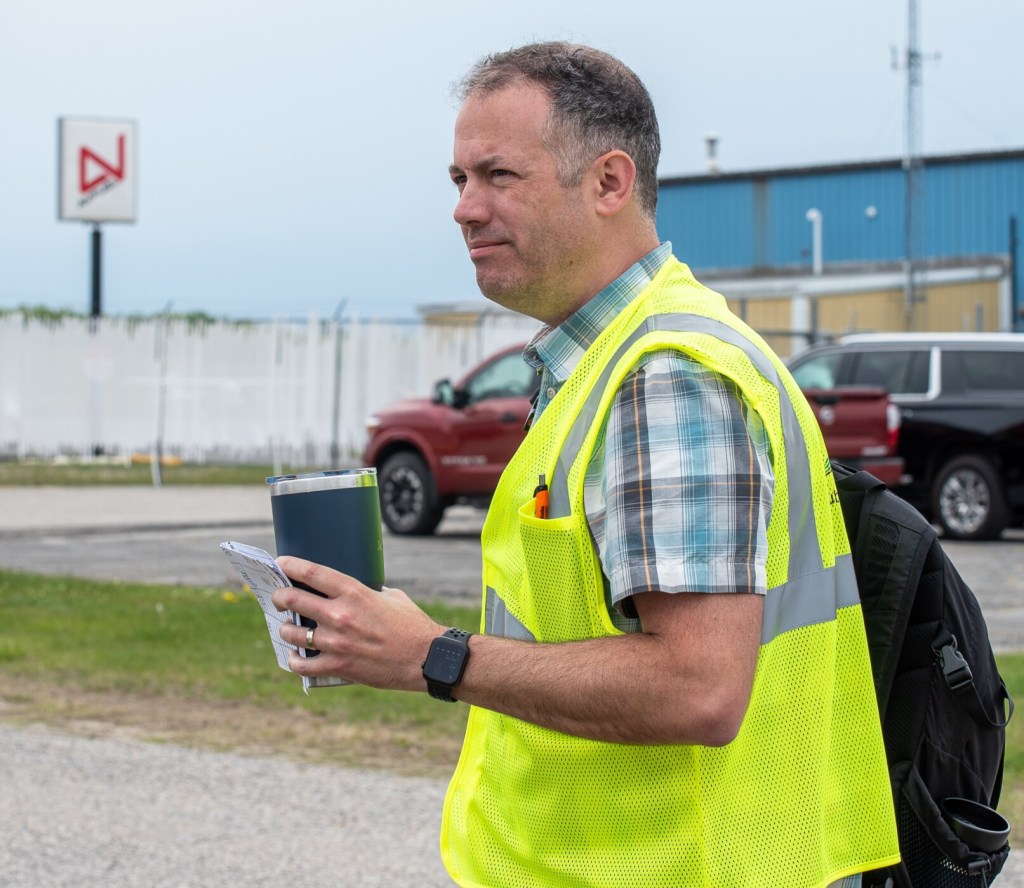
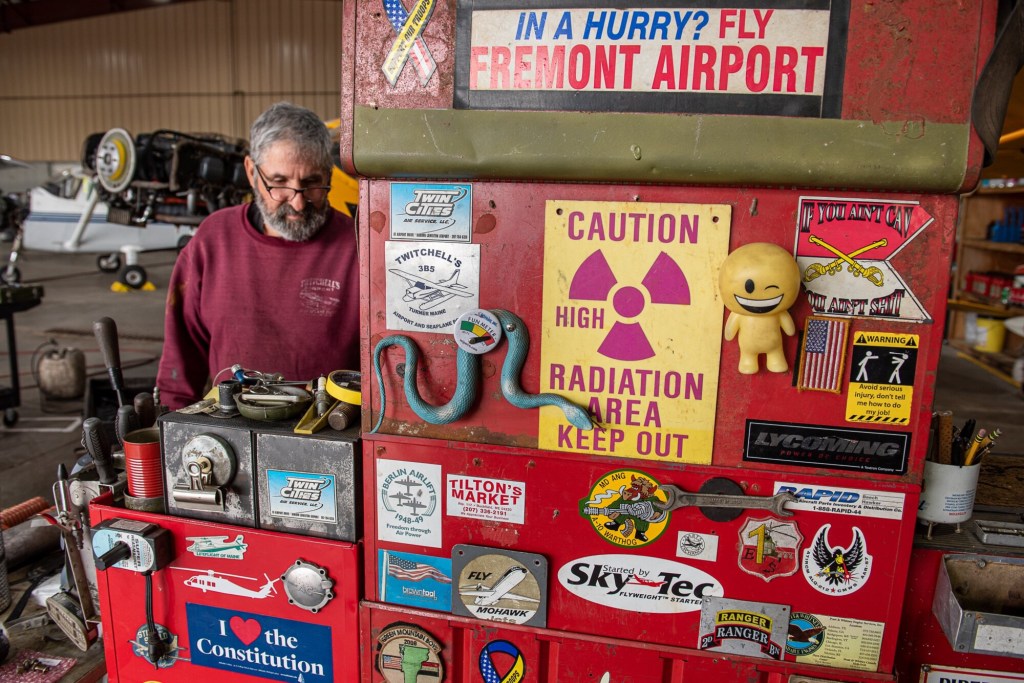
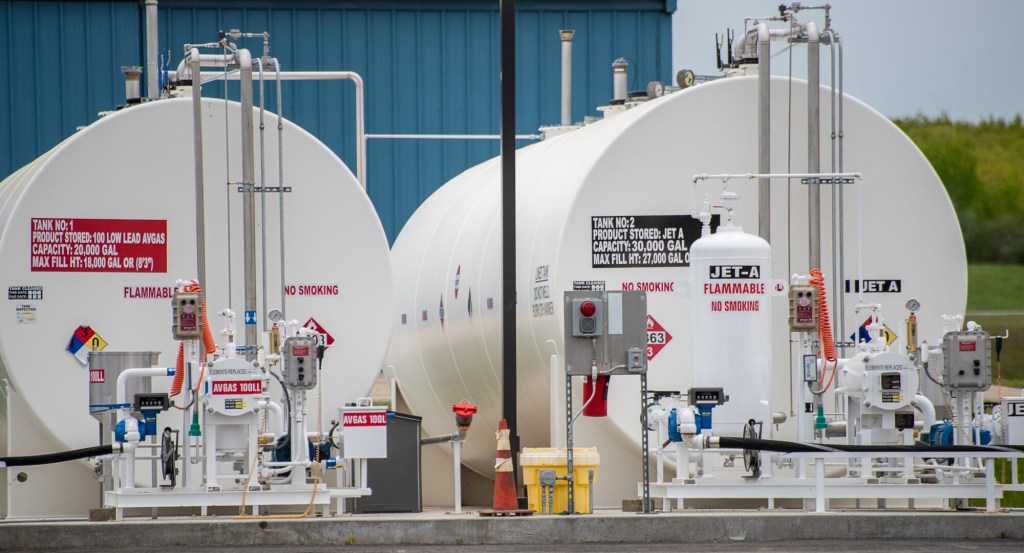

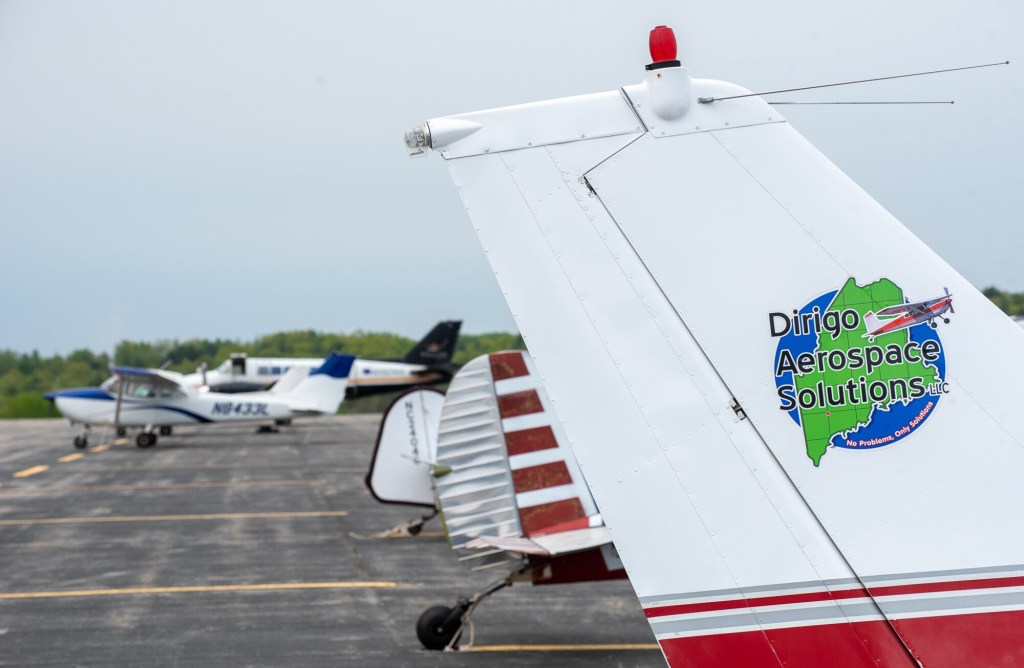
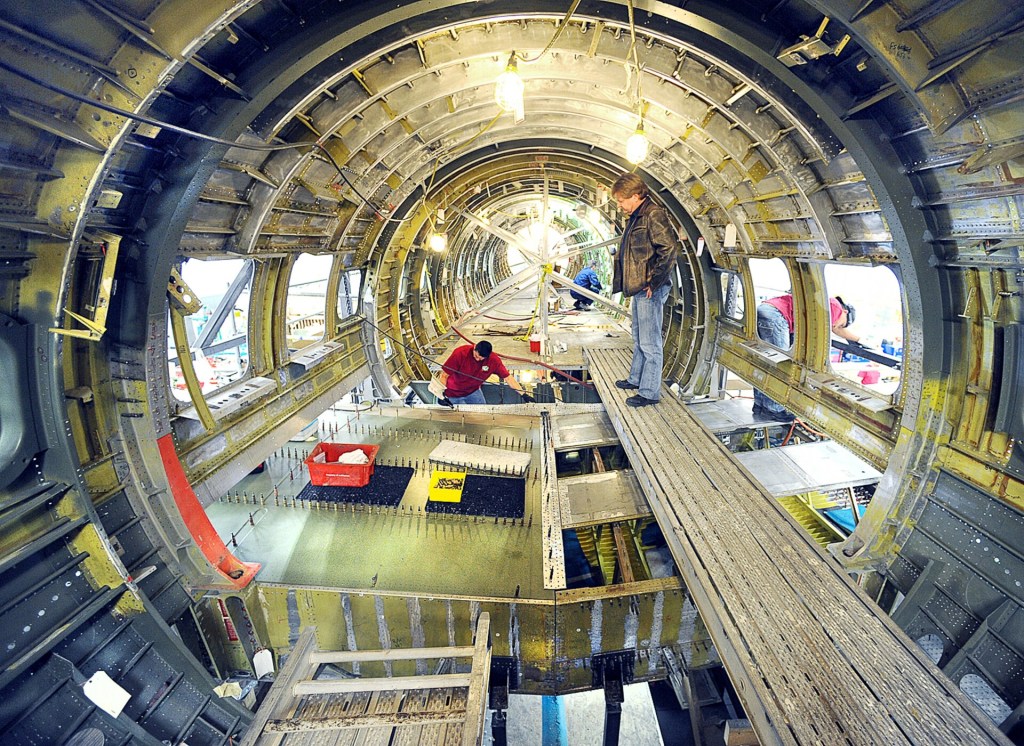
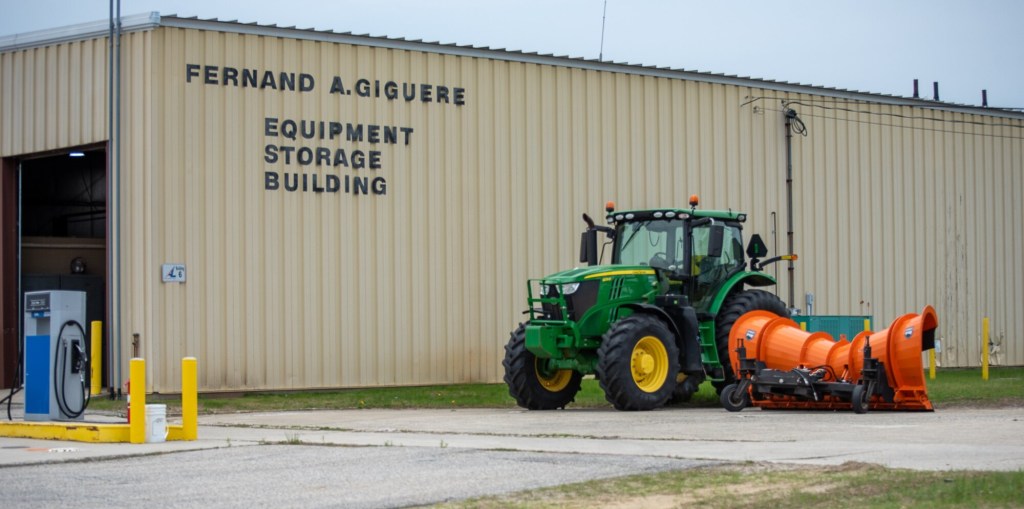
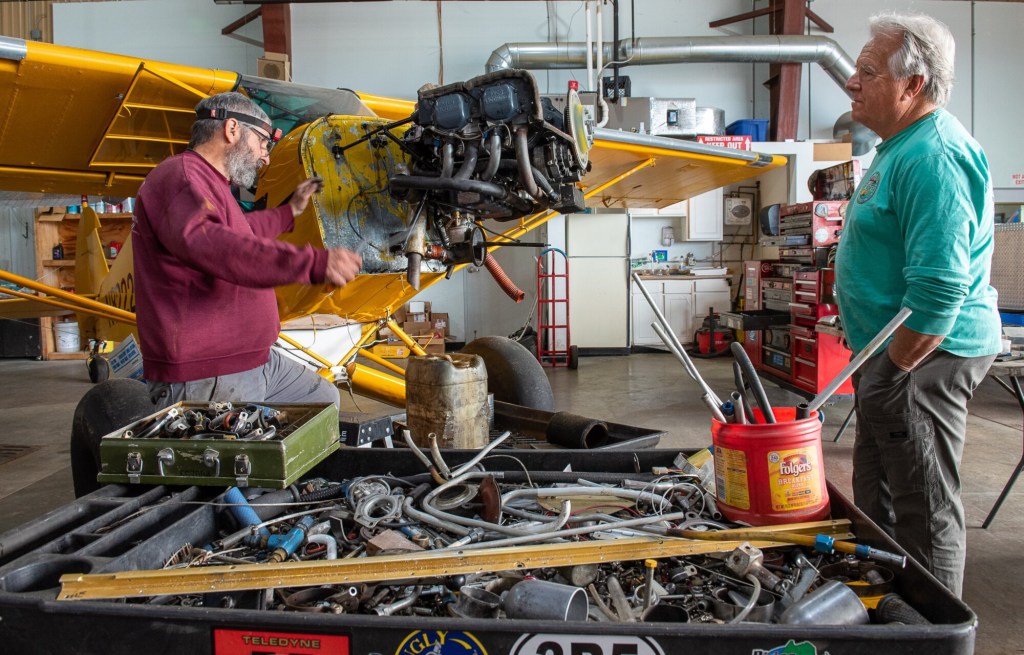
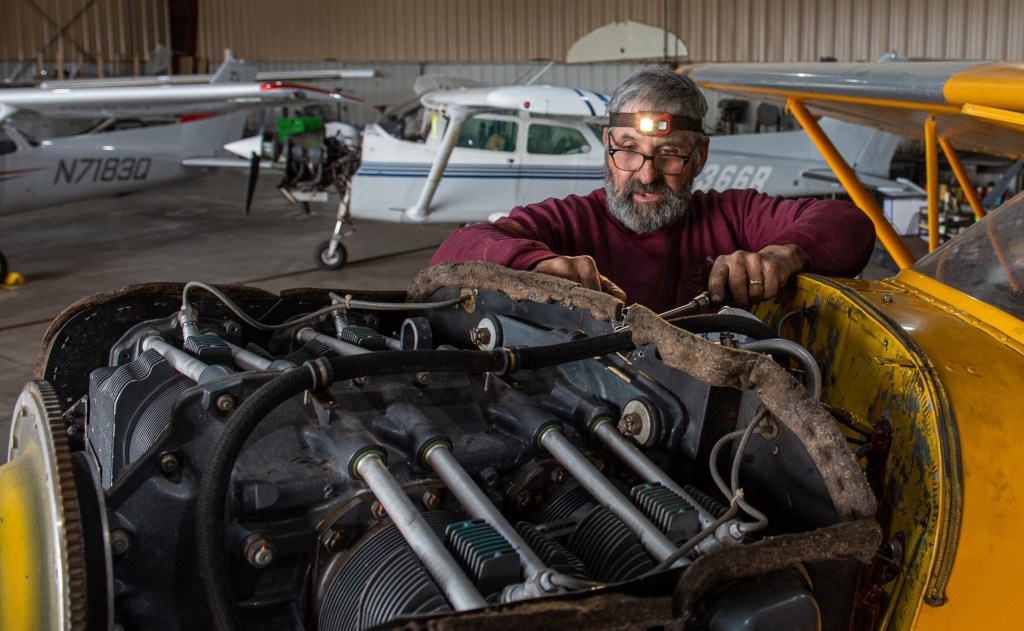
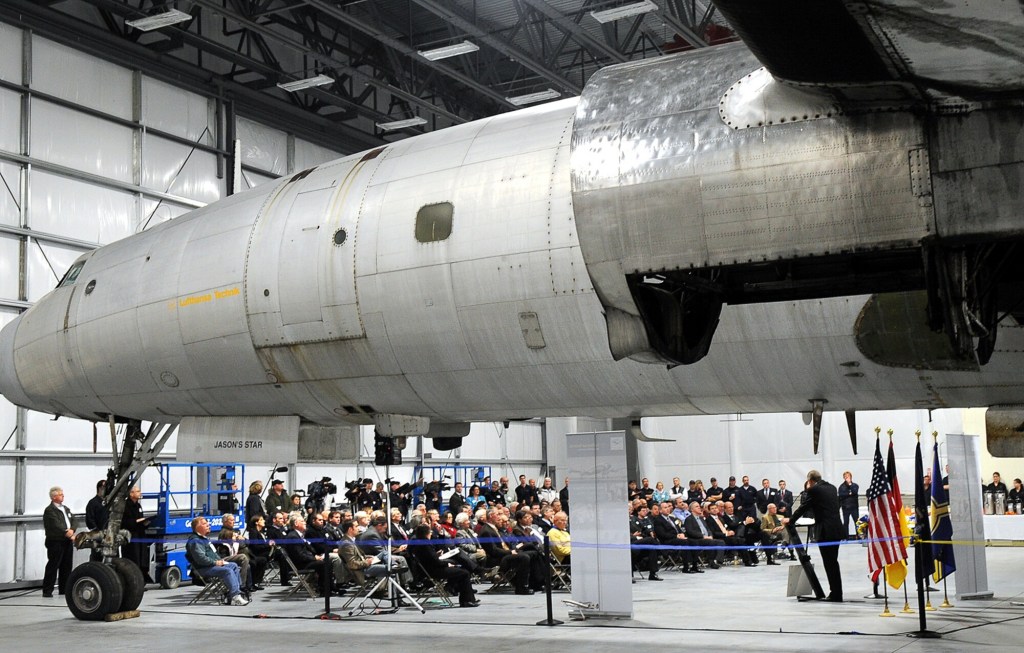
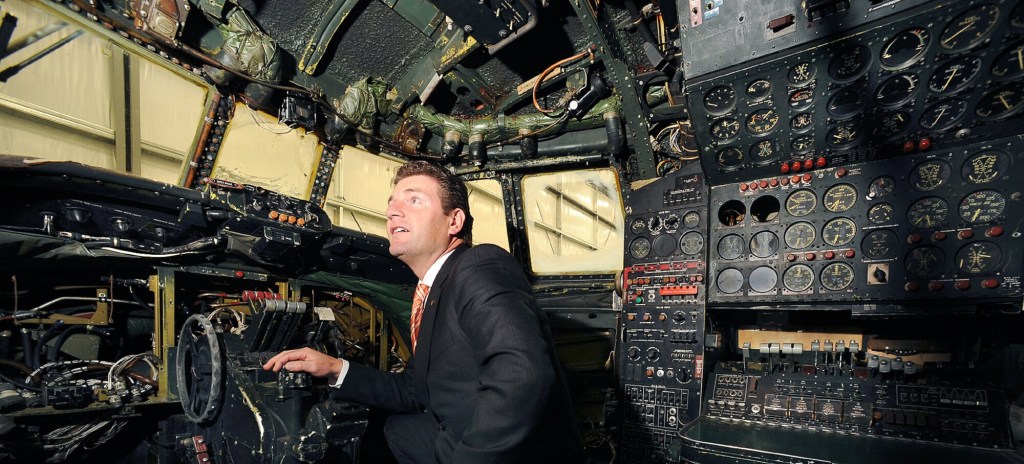
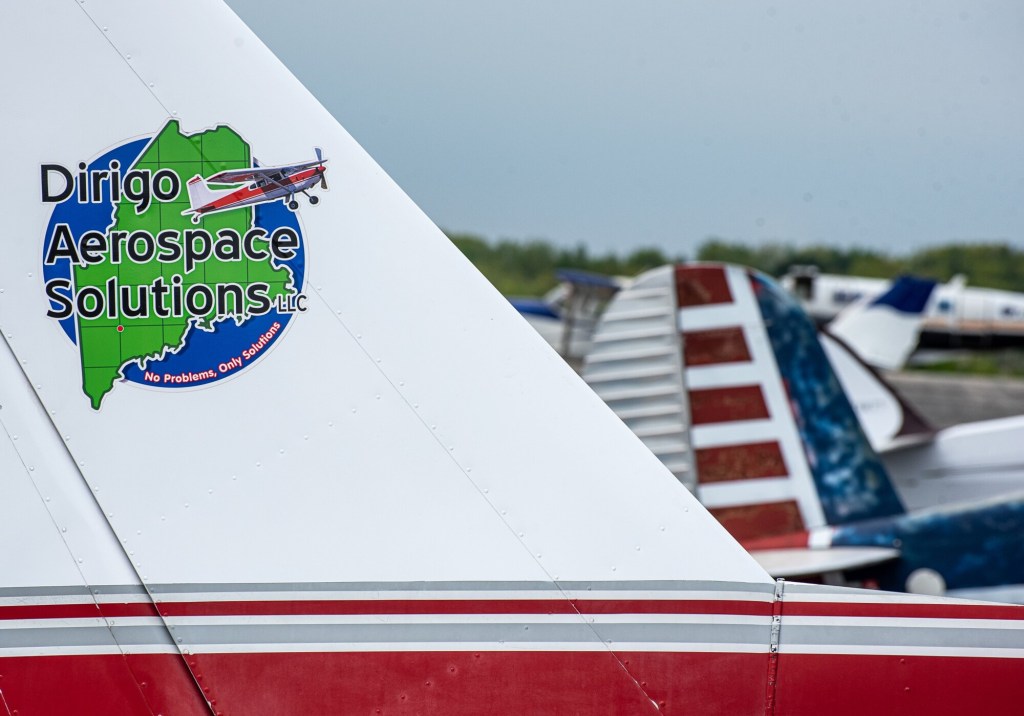
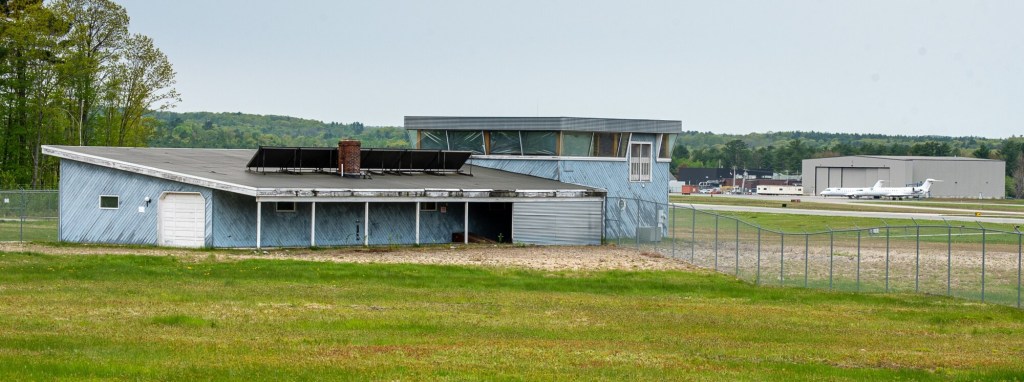

Success. Please wait for the page to reload. If the page does not reload within 5 seconds, please refresh the page.
Enter your email and password to access comments.
Hi, to comment on stories you must . This profile is in addition to your subscription and website login.
Already have a commenting profile? .
Invalid username/password.
Please check your email to confirm and complete your registration.
Only subscribers are eligible to post comments. Please subscribe or login first for digital access. Here’s why.
Use the form below to reset your password. When you've submitted your account email, we will send an email with a reset code.